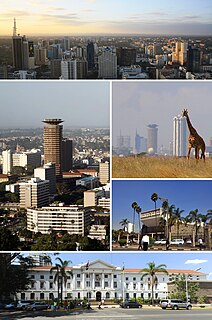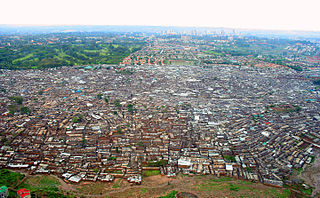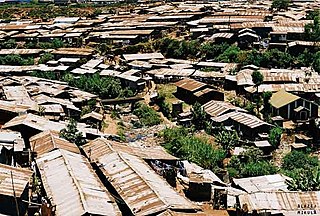Koinonia is a lay Christian community with social and humanitarian projects in Kenya, Zambia and the Nuba Mountains of Sudan.
Koinonia is a lay Christian community with social and humanitarian projects in Kenya, Zambia and the Nuba Mountains of Sudan.
The Koinonia Community was initially founded in 1988 by Father Renato Kizito Sesana, a Comboni Priest, and a group of young men from different professions and backgrounds. Members of the community live as one family, sharing dreams, successes and failures, with their inspiration being the life of the early biblical Christians as recorded in the Acts of the Apostles. Today, the community has about thirty members, all of whom are financially independent.
Koinonia Community members are committed to the growth of the local society within which Koinonia is based. In line with their calling, the members strive to counteract the economic and social evils bred by individualism and abject poverty.
The members try, in their daily lives, to integrate the best of African tradition and Gospel values into a commitment to belong to the modern world. To achieve this aspiration, the Community gives special attention to modern means of social communication and their role in fostering a sense of unity and belonging within the society.
Since its registration as a corporate body in 1996, Koinonia Kenya has undertaken a host of activities and social enterprises in the societies within which the community is based. The activities and projects give priority to the marginalized members of the society, such as children in difficult circumstances – especially street children – as well as women and young people from poor backgrounds.
The community runs the following activities and projects:
Kivuli Centre, a rehabilitation center for children rescued from the streets. The centre houses 60 boys and provides a variety of activities for the resident children as well as the youth of the surrounding area. Located along Kabiria Road, in Nairobi’s Dagoretti Division, the centre has a dispensary, a computer school, micro credit programmes and a number of income generating initiatives.
Anita’s Home, a rehabilitation and formation home for former female street children. The home is situated at Ngong Town, 20 kilometers south of Nairobi, and holds 60 girls.
Ndugu Mdogo, a rehabilitation home that offers a hospitable environment for vulnerable children from the streets of the expansive Kibera slum. The home is located at Kerarapon, between Nairobi’s affluent Karen suburb and Ngong town. It has 30 resident children, whom it provides with basic needs, medical services and a family lifestyle.
Ndugu Mdogo Drop-In Centre, an initiative at the expansive Kibera slum, where Koinonia social workers initiate the rehabilitation process through activities targeting children living on the streets. The Drop-In centre also provides shelter for children in emergency situations such as sickness, abuse by adults or any other immediate danger.
Tone la Maji, a children’s rehabilitation centre with a special focus on pedagogical activities and research. Located at Ongata Rongai in the Rift Valley Province of Kenya, the centre is a partnership with La Goccia, an Italian association based in Senago – Milano, Italy. It holds 60 resident children.
Domus Mariae, a modern secondary school that affords academically outstanding children from unfortunate backgrounds access to quality education, in line with the Millennium Development Goals.
Paolo’s Home, A rehabilitation centre that provides physiotherapy services to physically disabled children in Nairobi's Kibera slum. It is named after Paolo, a talented, courageous, physically handicapped Italian man who died in 2005.
Koinonia House (also called The Mother House), a premises in Riruta Satellite, Nairobi, which hosts Koinonia Community members and students from the Nuba Mountains of Central Sudan, who have scholarships to study in Nairobi. The house also hosts several Koinonia initiatives, including Kivuli Ndogo, a programme which allows street boys from the surrounding areas to visits on Saturdays and Wednesday to wash, attend informal classes, and share a meal.
Various Koinonia Kenya initiatives have grown to obtain an identity of their own. These include the following;
NAREC (Nairobi Recyclers), a community based environmental conservation initiative which engages street children in the collection, recycling and reselling of plastic and glass waste. NAREC currently generates income for about 25 street boys.
White Gazelle tours, a non-profit travel agent that specializes in social tourism and reinvests its earnings in other Koinonia Community projects.
Shalom House, a building complex with accommodation, dining and workshop facilities. Shalom house also houses a documentation centre on peace and reconciliation in Africa, as well as the offices of various organizations and associations. Located on St. Daniel Comboni road, off Ngong Road in Nairobi, Shalom House also serves as the Koinonia Kenya Headquarters.
Koinonia Advisory Research and Development Services (KARDS), a Community Development consultancy with special focus on organizational capacity building and training of community based staff. KARDS undertakes projects in Eastern and Central Africa, the Great Lakes Region and the Horn of Africa.
Shalom IT Centre, an Information Technology training institute that aims to provide professional standards to talented youth, who are then empowered to contribute their skills towards the economic, social and human growth of Kenya.
NewsFromAfrica.org, an electronic news bulletin that publishes news, features, press reviews and editorials. All published material is written from the perspective of the African grassroots people in their struggle for freedom, dignity and justice.
Africa Peace Link, a non profit coalition of volunteer persons and corporate bodies that offer their skills to help integrate Information and Communication Technology development into the growth of the African people. Africa PeaceLink lays its underlying emphasis on the promotion of peace, justice, human rights, environment awareness and freedom of expression in Africa. All volunteers offer their services absolutely free of charge.
Nafsi Afrika Acrobats, a registered community-based organization that sources and nurtures artistic talent.
The Koinonia Community has spread to the Nuba Mountains of Sudan, where a sister community, Koinonia Nuba, runs two primary schools and the Yousif Kuwa Teachers Training Institute (YKTTI), which is named after Yousif Kuwa, a legendary commander in the Sudan People's Liberation Army and longtime leader of the Nuba people.
Another sister community is in Zambia (Koinonia Zambia). It runs a children’s home and a large farm in the outskirts of the capital, Lusaka.
The term “Koinonia” is an ancient Greek word that roughly means “deep fellowship.” It is used often in the New Testament of the Bible to denote the broad concept of communion through intimate participation, as exhibited by the relationship between the apostles in the early Christian church.

Nairobi is the capital and largest city of Kenya. The name comes from the Maasai phrase Enkare Nairobi, which translates to "place of cool waters", a reference to the Nairobi River which flows through the city. The city proper had a population of 4,397,073 in the 2019 census, while the metropolitan area has a population of 9,354,580. The city is popularly referred to as the Green City in the Sun.
The Green Belt Movement (GBM) is an indigenous, grassroots, non-governmental organization based in Nairobi, Kenya, that takes a holistic approach to development by focusing on environmental conservation, community development and capacity building. Professor Wangari Maathai established the organization in 1977, under the auspices of the National Council of Women of Kenya.

Kibera is a division of Nairobi Area, Kenya, and neighbourhood of the city of Nairobi, 6.6 kilometres (4.1 mi) from the city centre. Kibera is the largest slum in Nairobi, and the largest urban slum in Africa. The 2009 Kenya Population and Housing Census reports Kibera's population as 170,070, contrary to previous estimates of one or two million people. Other sources suggest the total Kibera population may be 500,000 to well over 1,000,000 depending on which slums are included in defining Kibera.
Lang'ata is a predominantly middle-class residential suburb of Nairobi in Kenya. The suburb consists of many smaller housing developments, referred to as estates. They include Nairobi Dam, Otiende, Southlands, Ngei, Jambo estate, Onyonka, Madaraka Estate, Kutch Prant, Rubia, NHC Langata, Akiba, Sun Valley, Royal Park and many others. These developments are primarily maisonettes or apartment blocks.

Founded in 2001 by Rye Barcott, Salim Mohamed, and the late Tabitha Atieno Festo, Carolina for Kibera is an international non-governmental organization (NGO) based in the informal settlement of Kibera in Nairobi, Kenya. Registered as an NGO in Kenya and a 501(c)3 in the US, CFK is a pioneer of grassroots participatory development, and leads a community-based sports program, girls' empowerment centre, medical clinic, maternity centre, nutrition centre, young health and wellness centre, community-health outreach program, scholarship program, entrepreneurship and economic development initiatives, and a research-based initiative to improve educational quality in informal schools in Kibera. CFK is also an affiliated entity at the University of North Carolina at Chapel Hill and has an office in the university's FedEx Global Education Center.
Toi market was an open-air market located on the outskirts of Kibera slum, Nairobi, Kenya. The market sat on a three-acre plot on Suna Road, a by-street to Ngong Road which runs almost the length of Nairobi, from the Lang'ata area into the center of the city.

Mathare is a collection of slums in Nairobi, Kenya with a population of approximately 500,000 people; the population of Mathare Valley alone, the oldest of the slums that make up Mathare, is 180,000 people. Mathare is the home of football teams Mathare United and Real Mathare of the MYSA.

A flying toilet is a facetious name for a plastic bag that is used as a simple collection device for human faeces when there is a lack of proper toilets and people are forced to practise open defecation. The filled and tied plastic bags are then discarded in ditches or on the roadside. Associated especially with slums, they are called flying toilets "because when you have filled them, you throw them as far away as you can".
Lang'ata Constituency is an electoral constituency in Nairobi County, Kenya, one of seventeen constituencies in the county. It consists of southern and southwestern areas of Nairobi. Langata constituency has common boundaries with Kibera Division of Nairobi. The entire constituency is located within Nairobi County. The constituency has an area of 223 km2 (86.1 sq mi). It was known as Nairobi South Constituency at the 1963 elections but since 1969 elections it has been known as Langata Constituency.
Yousif Kuwa Mekki was a Sudanese revolutionary, rebel commander and politician.
Renato "Kizito" Sesana is an Italian Comboni missionary, journalist and humanitarian worker. He is well known for his work to rescue the street children of Nairobi.

Korogocho is one of the largest slum neighbourhoods of Nairobi, Kenya. Home to 150,000 to 200,000 people pressed into 1.5 square kilometres, northeast of the city centre, Korogocho was founded as a shanty town on the then outskirts of the city.
The Nairobi Dam is an embankment dam on the Nairobi River in Nairobi, Kenya.

James Wani Igga is a South Sudanese who was the second vice president of South Sudan. He was speaker of the National Legislative Assembly from 2011 to 2013 and secretary general of the Sudan People's Liberation Movement. On 30 May 2020, he tested positive for COVID-19.
Ligi Ndogo Soccer Club is a football club and youth academy based in Nairobi, Kenya. The senior team currently competes in the National Super League, the second tier of the Kenyan football league system. The club's name is Swahili for "little league".
The following is a timeline of the history of the city of Nairobi, Kenya.

The Catholic Medical Mission Board (CMMB) is an international, faith-based NGO, providing long-term, co-operative medical and development aid to communities affected by poverty and healthcare issues. It was established in 1912 and officially registered in 1928. CMMB is headquartered in New York City, USA, and currently has country offices in Haiti, Kenya, Peru, South Sudan, and Zambia.
Anisia Karlo Achieng Olworo is a South Sudanese MP and women's rights activist.
Kennedy Odede is a Kenyan social entrepreneur and author of a New York Times best-selling memoir. Odede serves as co-founder and CEO of Shining Hope for Communities (SHOFCO), a grassroots movement based in Nairobi, Kenya and New York, USA. SHOFCO works in urban slums across Kenya, setting up and running a free school for girls in the slum, making clean water and medical care accessible, and helping individuals start small businesses.